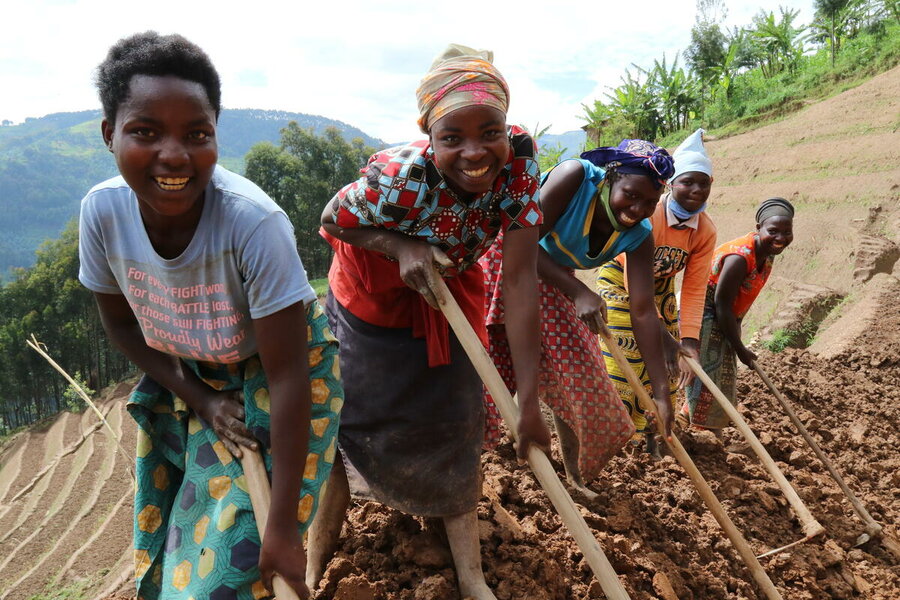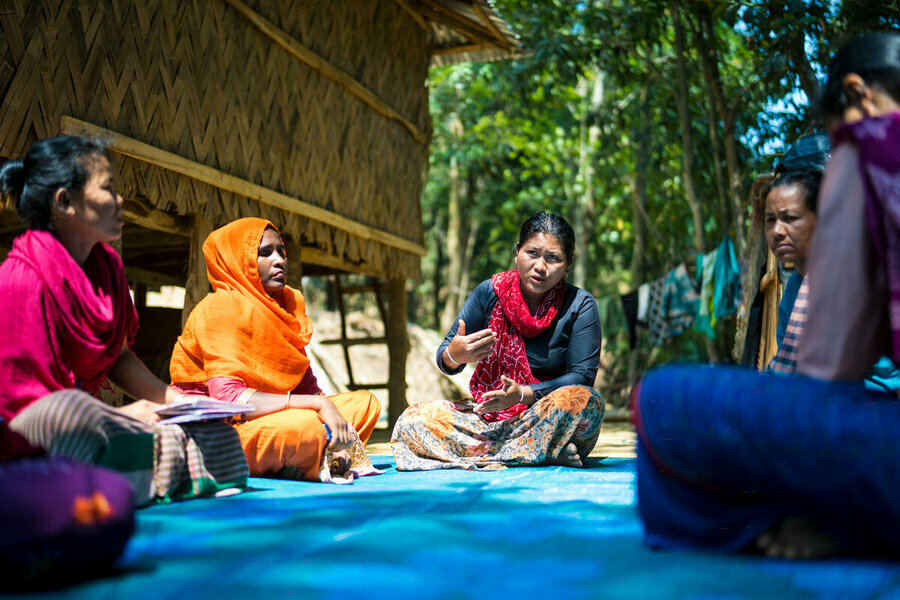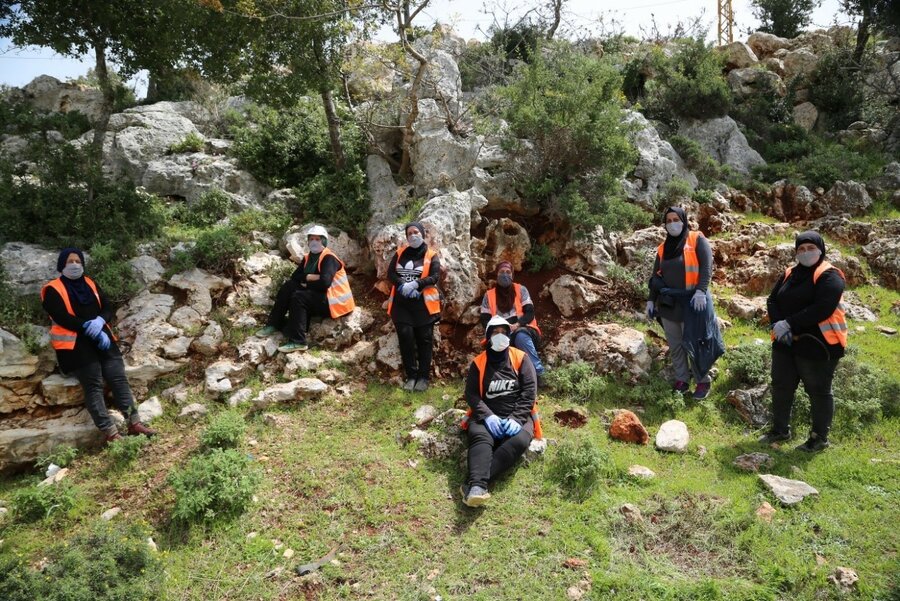Everything You Need to Know About Food Systems: How They Can Avert Famine and Help End Hunger

Earlier this year, the UN’s SOFI report (or The State of Food and Nutrition in the World 2021), confirmed the United Nations World Food Programme’s (WFP) worst fears — up to 811 million people went hungry last year as the combined effects of conflict, climate extremes and the coronavirus pandemic pushed a further 161 million into food insecurity. Pockets of ‘famine-like’ conditions, identified in countries such as Yemen, Madagascar and South Sudan, are also expected to affect up to 584,000 people this year.
This rising hunger is happening in a world where one-third of the world’s food supply is lost or wasted annually. Transforming our flawed food systems and reversing current food waste trends could save enough food to feed 2 billion people.
Read on to learn the basics on food systems

Participants in the U.N. World Food Programme’s resilient livelihoods program in Rutsiro, Western Rwanda.
What Are Food Systems?
In a nutshell, it encompasses everything from ‘farm to fork’— it’s about having a broader picture of how we produce, transport, process and consume food. For example, take flour:
- Where does the seed come from? Where was it sourced? Where was it planted?
- What materials were used to make it grow? How was it harvested?
- How was it processed and packaged?
- Where was it sold?
- What was the end-use? Was it fed to livestock? To human beings?
- How was it transported to supermarkets?
Then There Is the ‘People Factor’
Who is planting that seed? Who’s harvesting, who’s consuming? The process behind the moment food is consumed ranges from rehabilitating soil to planting seeds to taking the environmental impact into account.

Bangladesh: Taimy Chakma, a mother of four, speaks to a women’s support group in Cox’s Bazar. Last year, she completed two years of training with the U.N. World Food Programme and now runs her own business.
Why Are Food Systems so Important?
The U.N. World Food Programme currently seeks to save and change the lives of 115.5 million people in more than 80 countries. Conflict remains the biggest driver of hunger, followed by climate change and the coronavirus pandemic. Food systems have a key role to play in ensuring people have regular access to nutritious food despite these factors.

Lebanon: Participants in a U.N. World Food Programme-backed resilience project, to boost green cover and help vulnerable people put food on the table.
The Environmental Footprint
Huge increases in human population and food production over the past 50 years are exhausting the replenishment of natural ‘eco-services’ like rivers and aquifers, healthy topsoil, forest lands and our oceans.
Sewage, plastics dumping and food garbage all affect our natural ecosystems and erode the building blocks of our food production.
What Is the U.N. World Food Programme’s Role in Food Systems?
The U.N. World Food Programme works to build ‘resilience’ to shocks caused by conflict or climate extremes through projects including: soil rehabilitation efforts, insurance programs for small-scale farmers, literacy initiatives and school meal programs.
With our partners, we ensure food systems provide adequate, safe and nutritious foods while empowering people with the skills and resources to prepare for shocks.

U.N. World Food Programme Executive Director David Beasley meets families and children seeking treatment for severe malnutrition, at a nutrition centre in Ambovombe district, Madagascar in June.
What can the rest of us do?
To continue saving and changing lives through 2021, the U.N. World Food Programme needs $15 billion. All of the U.N. World Food Programme’s operations are entirely funded through voluntary contributions from donor governments, institutions, corporations and individuals. Click here to donate.
Learn more about the UN’s pre-summit event in Rome and click here to sign up to events.




